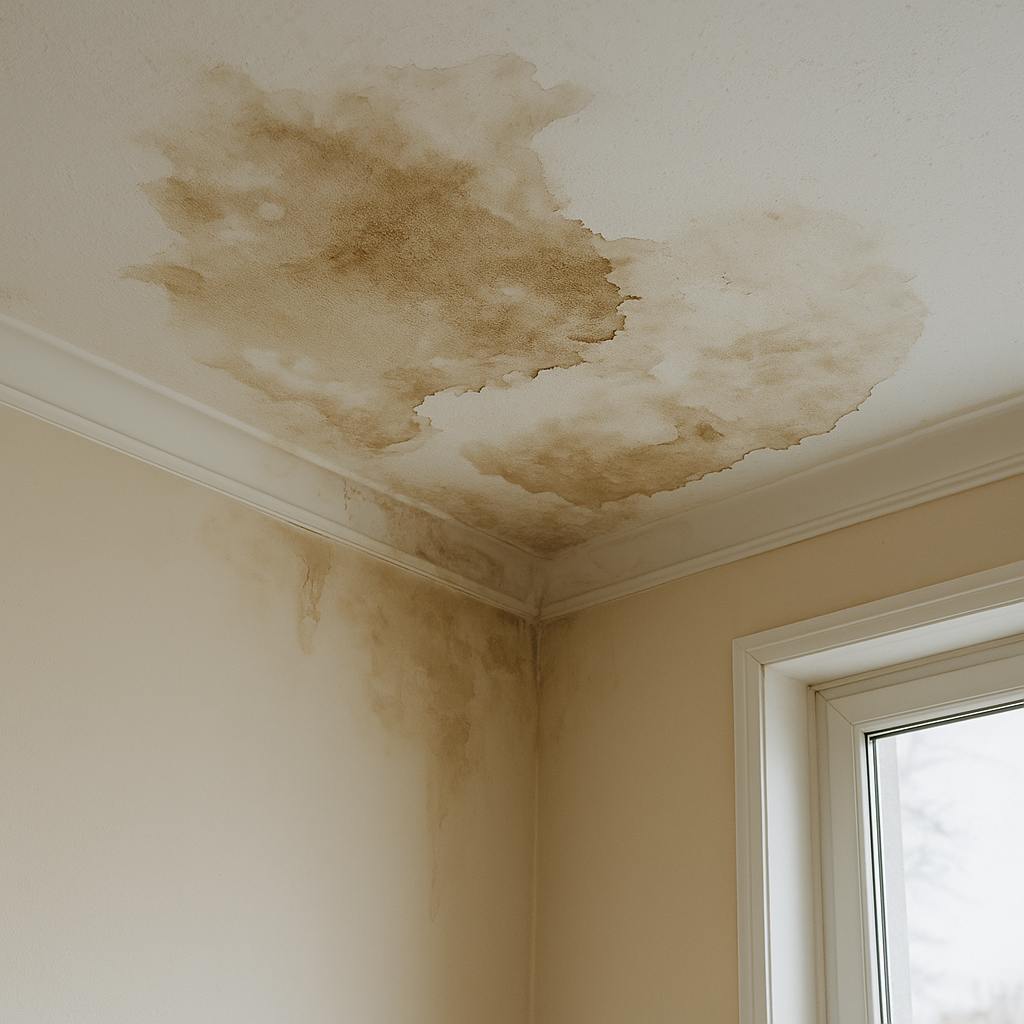How to Spot a Water Leak Early in Your Edinburgh Home
5/20/2025

💧 How to Spot a Water Leak Early in Your Edinburgh Home
Water leaks are one of the most common plumbing issues we deal with across Edinburgh. But what makes them especially tricky is how often they go unnoticed — quietly causing damage behind walls, under floors, or in ceilings until the signs become too big (and expensive) to ignore.
At Able Girl Plumbing, we’ve helped countless homeowners catch leaks early — often saving them hundreds (if not thousands) in repairs. In this post, we’ll show you how to spot the signs of a water leak before it turns into a major problem, and what you can do about it.
🚨 Why Early Leak Detection Matters
Not all leaks are as obvious as a dripping tap or a burst pipe spraying water. Many develop slowly and silently, especially in older properties or during cold Edinburgh winters.
If left unchecked, hidden leaks can cause:
- Mould and damp — which can affect your health and air quality
- Rising water bills — even a small leak can waste hundreds of litres
- Structural damage — to ceilings, flooring, plasterwork, or joists
- Electrical issues — where leaks affect wires or lighting
- Pest attraction — like silverfish, woodlice, and even rodents
The earlier you catch a leak, the easier (and cheaper) it is to fix.
🔍 Signs You Might Have a Water Leak
Here are five of the most common warning signs we advise homeowners to look out for — especially in older homes, tenement flats, or properties with aging plumbing.
1. 💧 Unusual Damp Patches
If you notice wet or damp patches appearing on your walls, ceilings, or floors — particularly in corners or near bathrooms — it could be a sign of leaking pipework behind the surface.
Watch for:
- Water stains with a yellow or brown tint
- Paint bubbling or plaster crumbling
- Damp areas that come and go depending on time of day or water use
2. 📈 A Sudden Increase in Your Water Bill
Noticed a spike in your water bill, but haven’t changed your usage? That’s a classic early warning sign. Compare the latest bill to previous months and look for unexpected increases.
In Edinburgh, with metered water becoming more common in modern homes, this is one of the easiest ways to catch leaks early — especially when they’re underground or behind walls.
3. 👃 Musty Smells or Mould
That musty, earthy smell that lingers in a room — even when it looks clean — is often the first sign of hidden moisture. You might not see mould yet, but if it smells damp, moisture is present.
Pay attention to:
- Bathrooms and kitchens
- Cupboards near plumbing
- Rooms directly under bathrooms
4. 👂 Dripping Sounds in a Quiet House
It sounds strange, but your ears can be a powerful leak detection tool.
If you hear dripping, hissing, or trickling water when no taps are running — especially late at night or early morning — it could be water escaping behind the walls or under the floorboards.
5. 🚿 Sudden Drop in Water Pressure
If your taps or shower have suddenly lost pressure, and neighbours aren’t reporting the same, it could be a leak in your pipework, allowing water to escape before it reaches your outlets.
In some cases, it might be a failing pressure valve — but it’s always worth investigating further if combined with any of the signs above.
🛠️ What to Do If You Suspect a Leak
If you think you might have a hidden leak, here are four steps you can take before calling a plumber:
1. Check Appliances and Isolate
Turn off taps, washing machines, dishwashers, and other water appliances one by one to see if the issue stops or lessens. If the leak sound disappears when you isolate something, you’ve narrowed it down.
2. Test Your Water Meter
This is a simple but powerful trick:
- Take a reading from your water meter
- Don’t use any water for 1–2 hours
- Check the meter again
If the numbers have changed, water is moving somewhere — likely from a leak.
3. Inspect Visible Pipework
Look under sinks, behind toilets, and around appliances for:
- Pooled water
- Corroded or damp joints
- Condensation where it shouldn’t be
These are common in older Edinburgh homes where the plumbing runs externally or through awkward spaces.
4. Don’t Ignore the Signs
Leaks never get better on their own. A small issue might just need a quick tightening or seal replacement — but left alone, it can escalate into major repairs or insurance claims.
🧯 How to Prevent Leaks in the Future
While not every leak is avoidable, regular upkeep can drastically reduce your risk.
Here’s what we recommend to Edinburgh homeowners:
- ✅ Know where your stopcock is (usually under the kitchen sink) and test that it turns easily
- ✅ Check under sinks and behind washing machines every few months
- ✅ Don’t overtighten taps or fittings, as this can damage washers and seals
- ✅ Book an annual plumbing check-up, especially if your home is older or you've recently renovated
Preventative plumbing is always cheaper than emergency plumbing.
🏡 Why Edinburgh Homes Are Prone to Leaks
Many of the homes we visit — especially tenement flats in Leith, Marchmont, Stockbridge, and Bruntsfield — were built over 100 years ago. That means pipework may be:
- Outdated
- Made of old materials (like lead or galvanised steel)
- Hidden behind solid stone walls or under timber floors
In shared stairwells and converted flats, one leak can affect multiple households, making fast response and expert diagnosis crucial.
Think You Might Have a Leak?
If you’ve noticed signs of damp, strange smells, or high water bills — don’t wait for things to get worse. Our experienced, friendly team at Able Girl Plumbing is here to help with leak detection, repairs, and preventative checks across Edinburgh.

